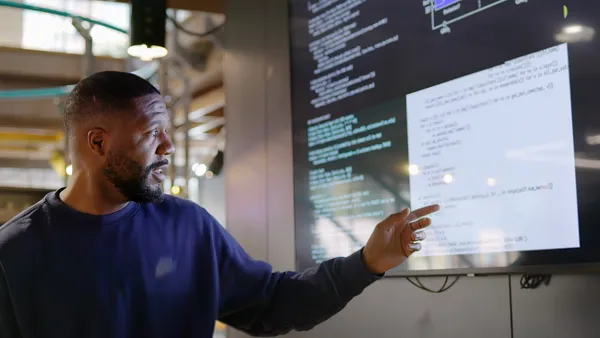Leaders in nearly every industry are recognizing the potential of IoT and machine-to-machine (M2M) technologies to transform businesses, and the area is set to take off in 2016.
According to the Vodafone M2M Barometer 2015, more than a quarter of all companies worldwide are now using M2M technologies. Andrew Morawski, head of M2M for the Americas at Vodafone, said as we move into the 2016, it's not a matter of "if," but "how," companies are using M2M to transform their businesses.
IDC agrees, and sees the evolution of millennial workers as another factor that will push IoT forward. According to IDC’s FutureScape report, “Worldwide Internet of Things 2016 Predictions,” as millennials move into business decision-making roles over the next three years, they will expect a business world “where connectivity is integrated, access to information is immediate, and monitoring of activities is real time” and they will push for faster deployments of real-time, sensor-driven applications.
This lays the foundation to accelerate IoT adoption, says IDC, and it will happen fast.
“IT departments are going to have to adjust policies and processes to accommodate this fast-moving demographic,” IDC said.
IBM bets the farm
Clearly, IoT is picking up steam. Gartner predicts there will be 25 billion or more IoT devices connected to the Internet by 2020.
IBM has been making big news around IoT, and investing big money. In March, the company announced that it would invest more than $3 billion to “address the needs of clients that are looking to capitalize on the increasing instrumentation and interconnectedness of the world driven by the IoT.”
Just last week, the company opened its new global headquarters for Watson IoT in Munich. IBM intends the Watson IoT headquarters to serve as an innovation lab for data scientists, engineers and programmers building connected solutions that combine cognitive computing and IoT.
IBM also opened eight new Watson IoT Client Experience Centers across Asia, Europe and the Americas.
"These cross-industry centers are established to engage with key clients to innovate on their IoT projects to bring cognition to the billions of connected devices in our world today," said Neil Postlethwaite, director, IBM IoT Foundation platform and Device Ecosystem. "The centers bring together IBM Development, Lab Services, IBM Research, Global Business Services and IBM Business Partners."
The company also launched a series of new offerings, capabilities and ecosystem partners all geared to combining the power of cognitive computing with the connected devices, sensors and systems that make up the IoT.
Within two years, Postlethwaite said, IoT will be the single greatest source of data on the planet — but nearly 90% of it will be "unseeable" for traditional computing systems. That, he said, is where Watson and cognitive computing comes in.
Security considerations
As IoT grows over the next several years, security will likely be the other major concern for CIOs.
Basil Hashem, senior director of mobile strategy at Vmware, said the biggest change IoT brings is a “new scale to an organization's data protection strategy, both in terms of diversity of devices and volume of data that is generated.”











